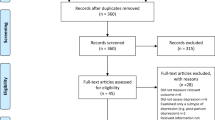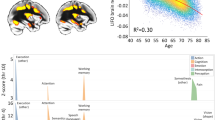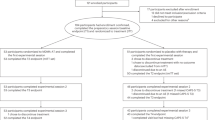Abstract
The current focus on identifying genes which predispose to psychiatric illness sharpens the need to identify environmental factors which interact with genetic predisposition and thus contribute to the multifactorial causation of these disorders. One such factor may be early parental loss (EPL). The putative relationship between early environmental stressors such as parental loss and psychopathology in adult life has intrigued psychiatrists for most of this century. We report a case control study in which rates of EPL, due to parental death or permanent separation before the age of 17 years were evaluated in patients with major depression (MD), bipolar disorder (BPD) and schizophrenia (SCZ), compared to individually matched, healthy control subjects (MD-Control, 79 pairs; BPD-Control, 79 pairs; SCZ-Control, 76 pairs). Loss of parent during childhood significantly increased the likelihood of developing MD during adult life (OR = 3.8, P = 0.001). The effect of loss due to permanent separation (P = 0.008) was more striking than loss due to death, as was loss before the age of 9 years (OR = 11.0, P = 0.003) compared to later childhood and adolescence. The overall rate of EPL was also increased in BPD (OR = 2.6, P = 0.048) but there were no significant findings in any of the sub-categories of loss. A significantly increased rate of EPL was observed in schizophrenia patients (OR = 3.8, P = 0.01), particularly before the age of 9 years (OR = 4.3, P = 0.01). Comparison of psychosocial, medical and clinical characteristics of subjects with and without a history of EPL, within the larger patient groups from which the matched samples were drawn (MD, n = 136; BPD, n = 107; SCZ, n = 160), yielded few significant findings. Among the controls (n = 170), however, subjects who had experienced EPL, reported lower incomes, had been divorced more frequently, were more likely to be living alone, were more likely to smoke or have smoked cigarettes and reported more physical illness (P = 0.03–0.001). Long term neurobiological consequences of early environmental stressors such as maternal deprivation have been extensively studied in many animal species. Recently, enduring changes in hypothalamic-pituitary-adrenal axis function, including corticotrophin releasing factor gene expression, have received particular attention. Analogous processes may be implicated in the effect of EPL on human vulnerability to psychopathology, via alterations in responsiveness to stress. Genetic predisposition may influence the degree of susceptibility of the individual to the effects of early environmental stress and may also determine the psychopathological entity to which the individual is rendered vulnerable as a consequence of the stress.
This is a preview of subscription content, access via your institution
Access options
Subscribe to this journal
Receive 12 print issues and online access
$259.00 per year
only $21.58 per issue
Buy this article
- Purchase on Springer Link
- Instant access to full article PDF
Prices may be subject to local taxes which are calculated during checkout
Similar content being viewed by others
Author information
Authors and Affiliations
Corresponding author
Rights and permissions
About this article
Cite this article
Agid, O., Shapira, B., Zislin, J. et al. Environment and vulnerability to major psychiatric illness: a case control study of early parental loss in major depression, bipolar disorder and schizophrenia. Mol Psychiatry 4, 163–172 (1999). https://doi.org/10.1038/sj.mp.4000473
Received:
Revised:
Accepted:
Published:
Issue Date:
DOI: https://doi.org/10.1038/sj.mp.4000473
Keywords
This article is cited by
-
Higher Income but Lower Happiness with Left-Behind Experience? A Study of Long-Term Effects for China’s Migrants
Applied Research in Quality of Life (2023)
-
The mediating pathways between parental separation in childhood and offspring hypertension at midlife
Scientific Reports (2022)
-
Chronic Escitalopram Treatment Does Not Alter the Effects of Neonatal Stress on Hippocampal BDNF Levels, 5-HT1A Expression and Emotional Behaviour of Male and Female Adolescent Rats
Molecular Neurobiology (2021)
-
MicroRNA mediators of early life stress vulnerability to depression and suicidal behavior
Molecular Psychiatry (2020)
-
The Impact of Early Life Stress on Anxiety Symptoms in Late Adulthood
Scientific Reports (2019)



